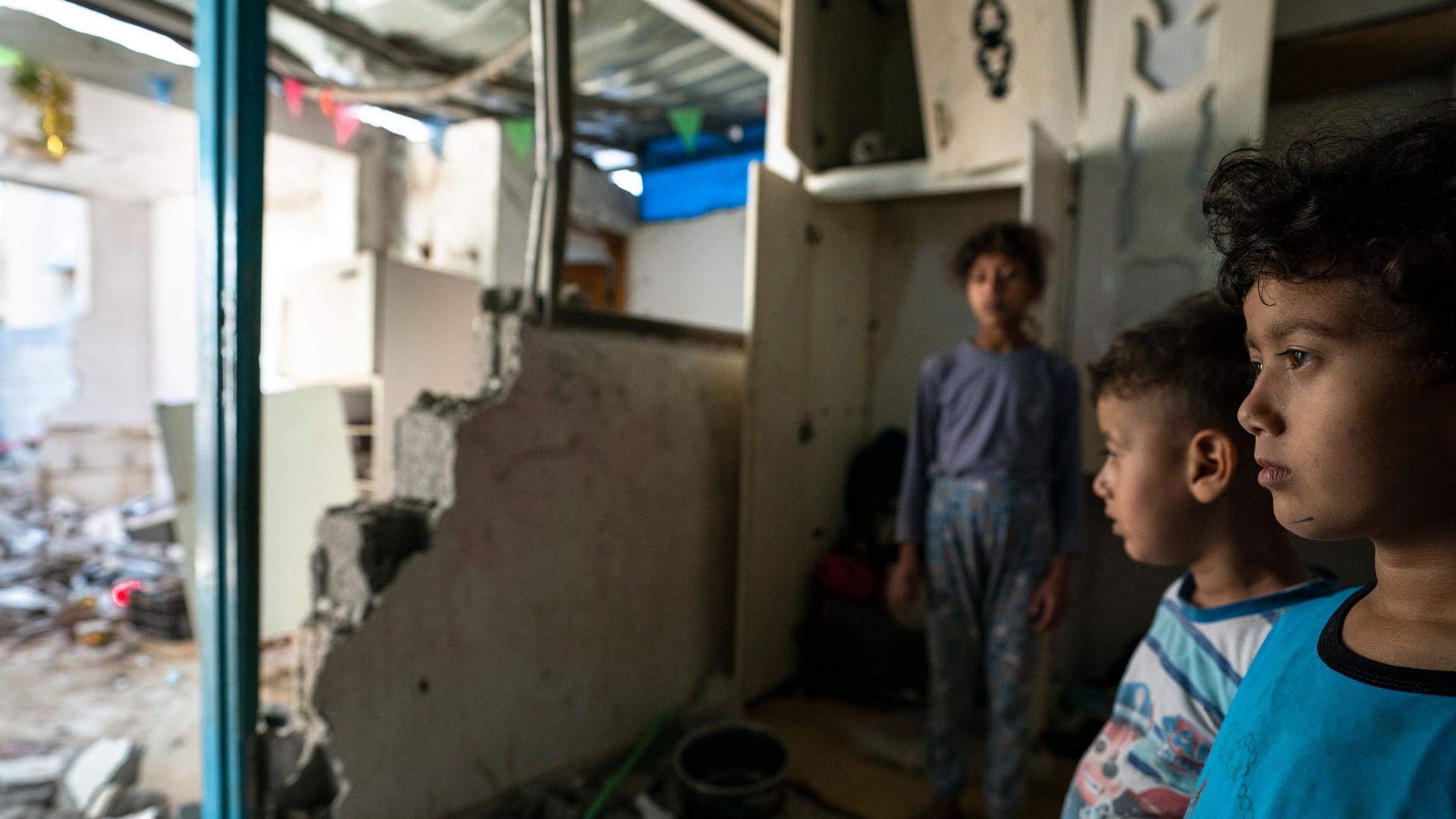PHOTOS: Shattered rooms show Gaza war’s toll on children
The latest Gaza war is over, but its wreckage still litters the purple bedroom of 9-year-old Shrouq al-Masri and her 4-year-old sister, Razan.
Their toys are coated with gray dust, the ceiling is bent and buckled, and the cracks in the walls slice through the cartoons that decorated them.
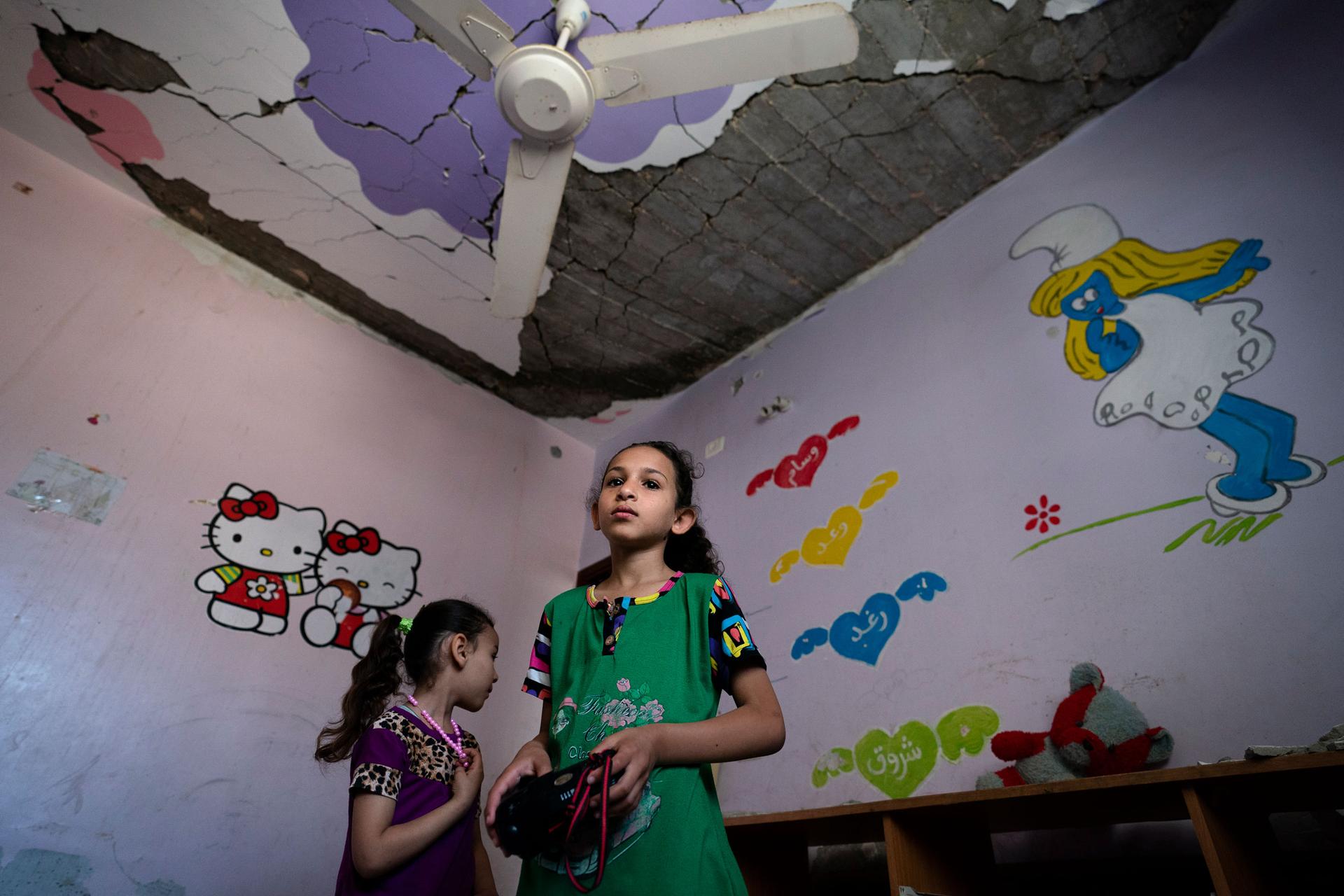
The two girls survived the early morning airstrike that destroyed a nearby building on May 19, two days before a cease-fire ended the war. But like so many children in Gaza, they will carry the memory of its horrors and devastation.
The 11-day war was the fourth fought between Israel and Hamas, the Palestinian militant group that has ruled Gaza since 2007. It featured the same waves of predawn Israeli airstrikes, the same continuous rocket fire out of the impoverished territory, and the same lopsided casualty toll, with Palestinians making up the vast majority of the more than 250 killed.
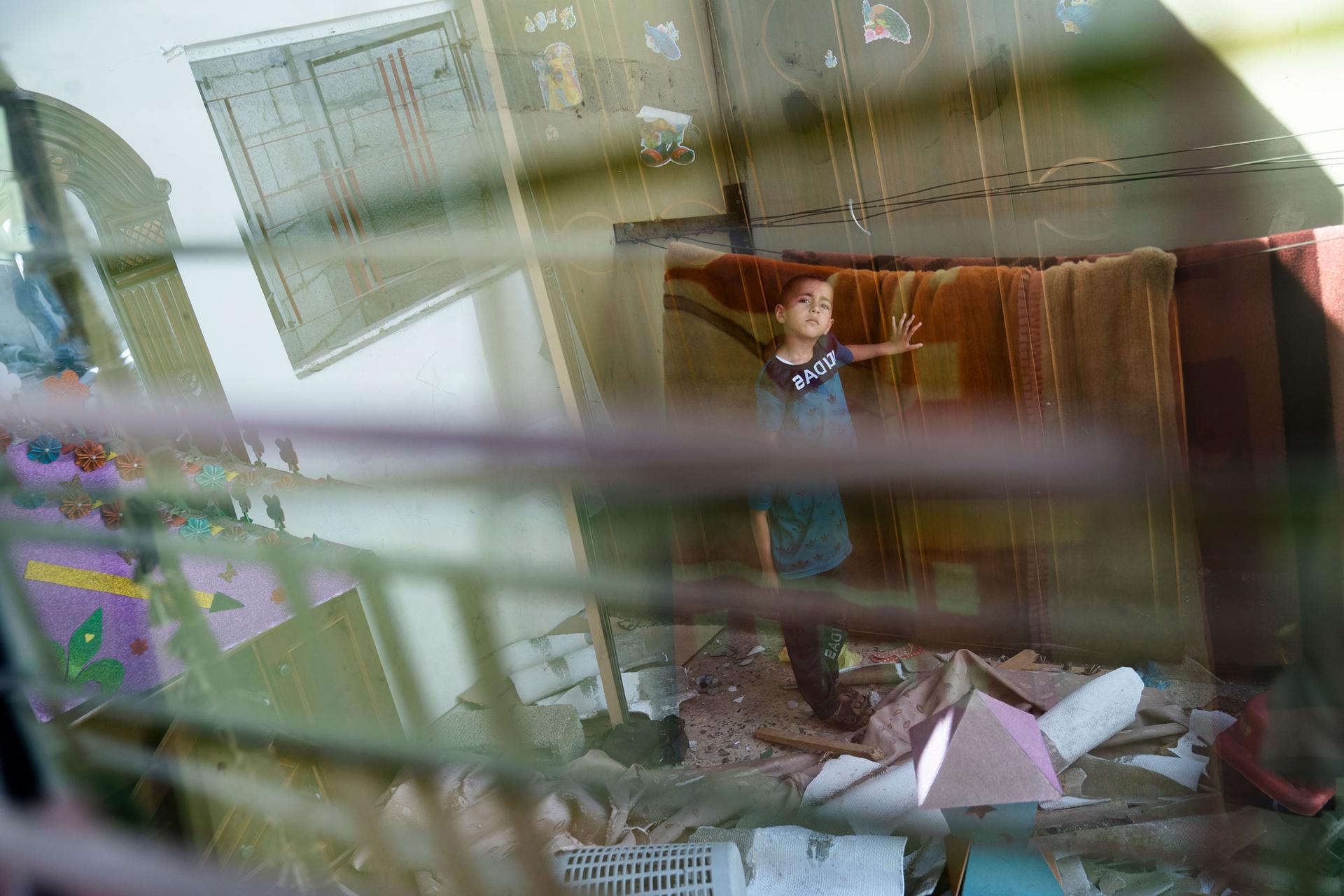
And like the others, it took a heavy toll on children. At least 66 Palestinian children were killed, as well as a 5-year-old boy and a 16-year-old girl on the Israeli side. Countless more were awakened in the night by explosions.
In the Maghazi refugee camp in southern Gaza, an airstrike tore the roof off the bedroom that 4-year-old Anas Alhajahmed shared with his sister and left the floor covered in shattered glass. They survived as well.
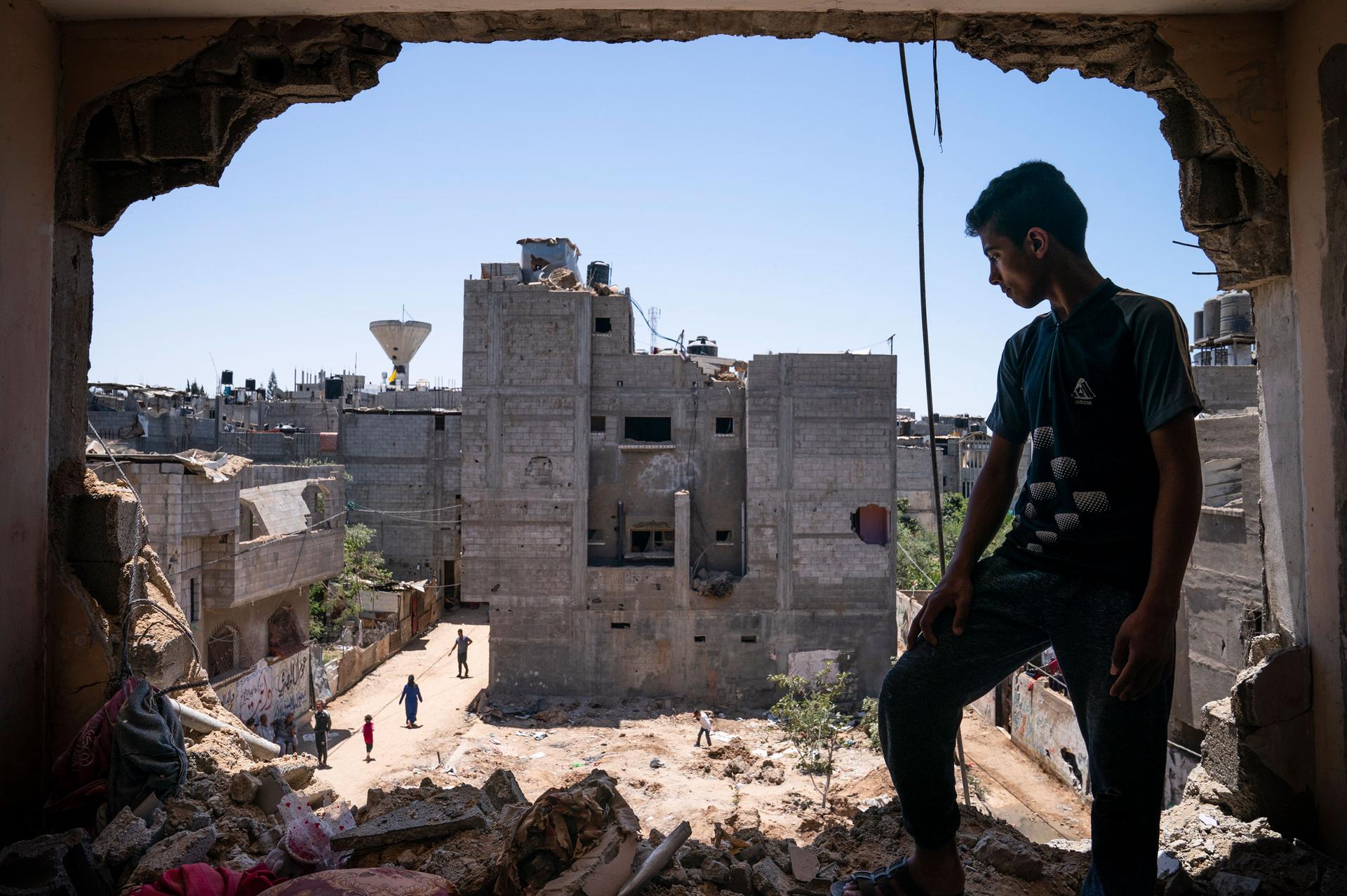
It was the first war in his short life, but most Gazans vividly recall the others — including the most devastating, in 2014, which lasted several weeks. Even adolescents can point out homes destroyed in previous rounds of fighting.
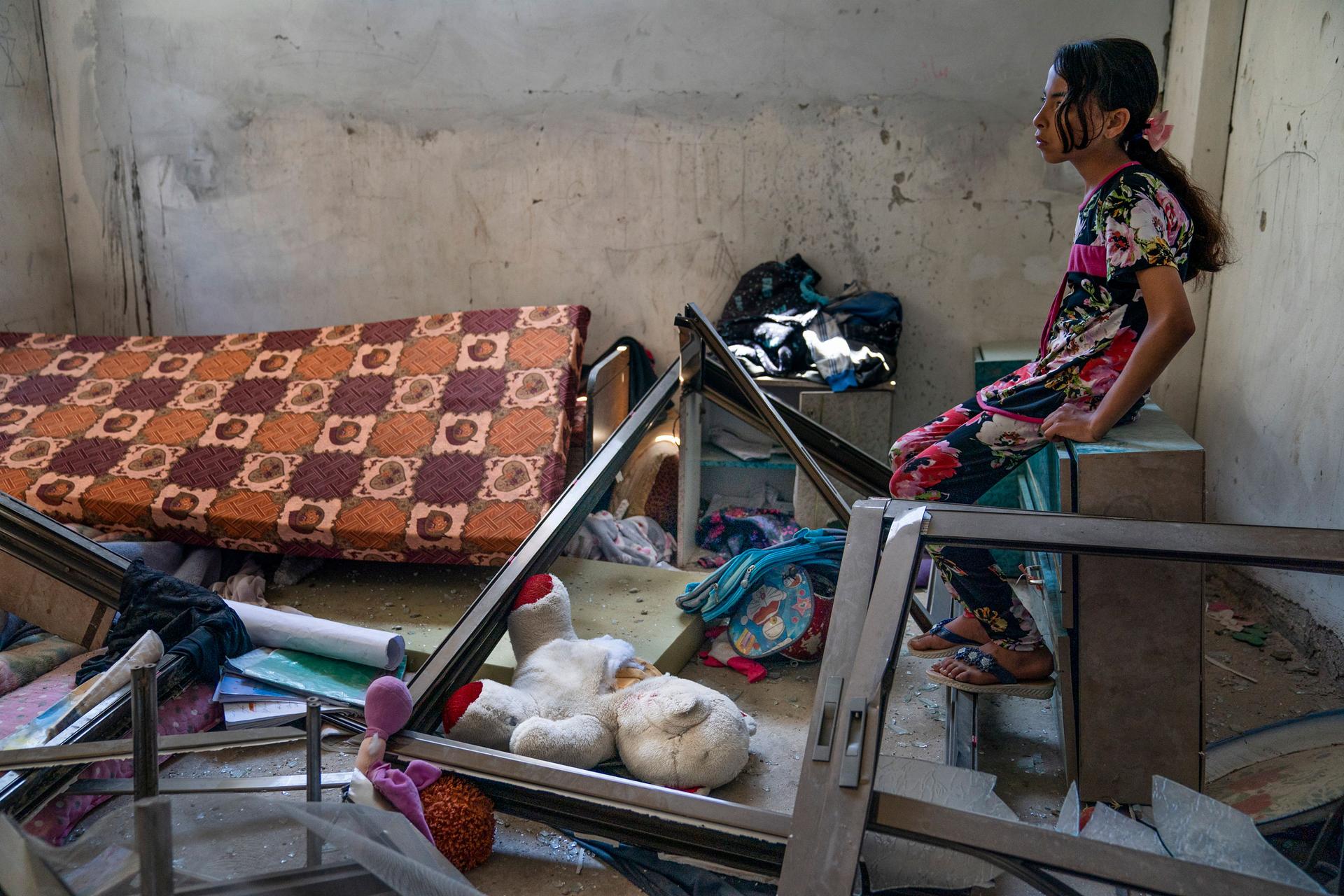
Israel blames the destruction on Hamas, which fires imprecise rockets from civilian areas in Gaza in the general direction of civilian areas in Israel. The military says it makes every effort to avoid civilian casualties. Hamas says it is fighting a decades-old military occupation, using the only weapons it has against a far superior military power. It says 80 militants were among those killed.
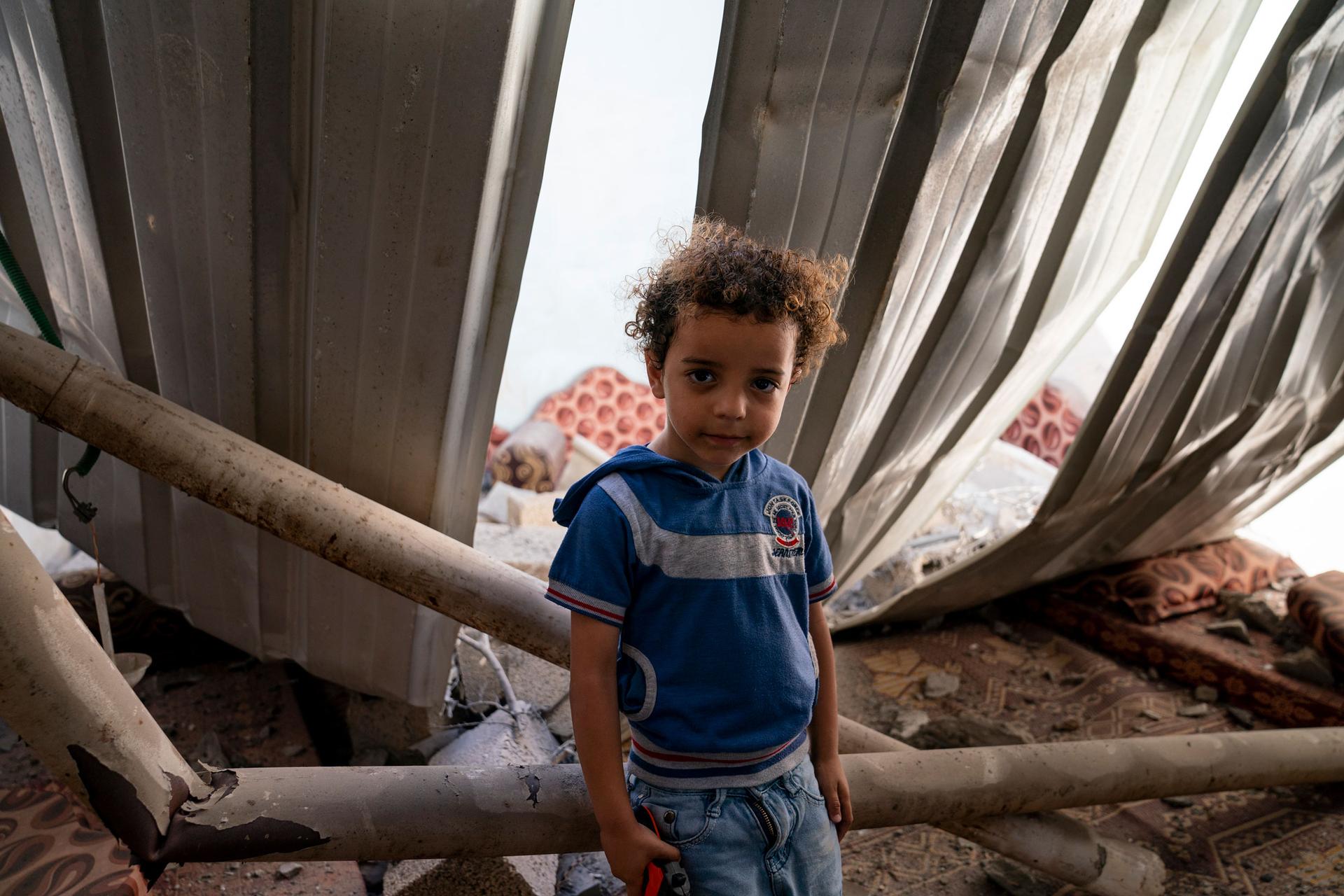
Both sides say they have no choice, and no one expects this war to be the last. Meanwhile, the intractable conflict takes its toll on those with the least capacity to understand its cruel logic.
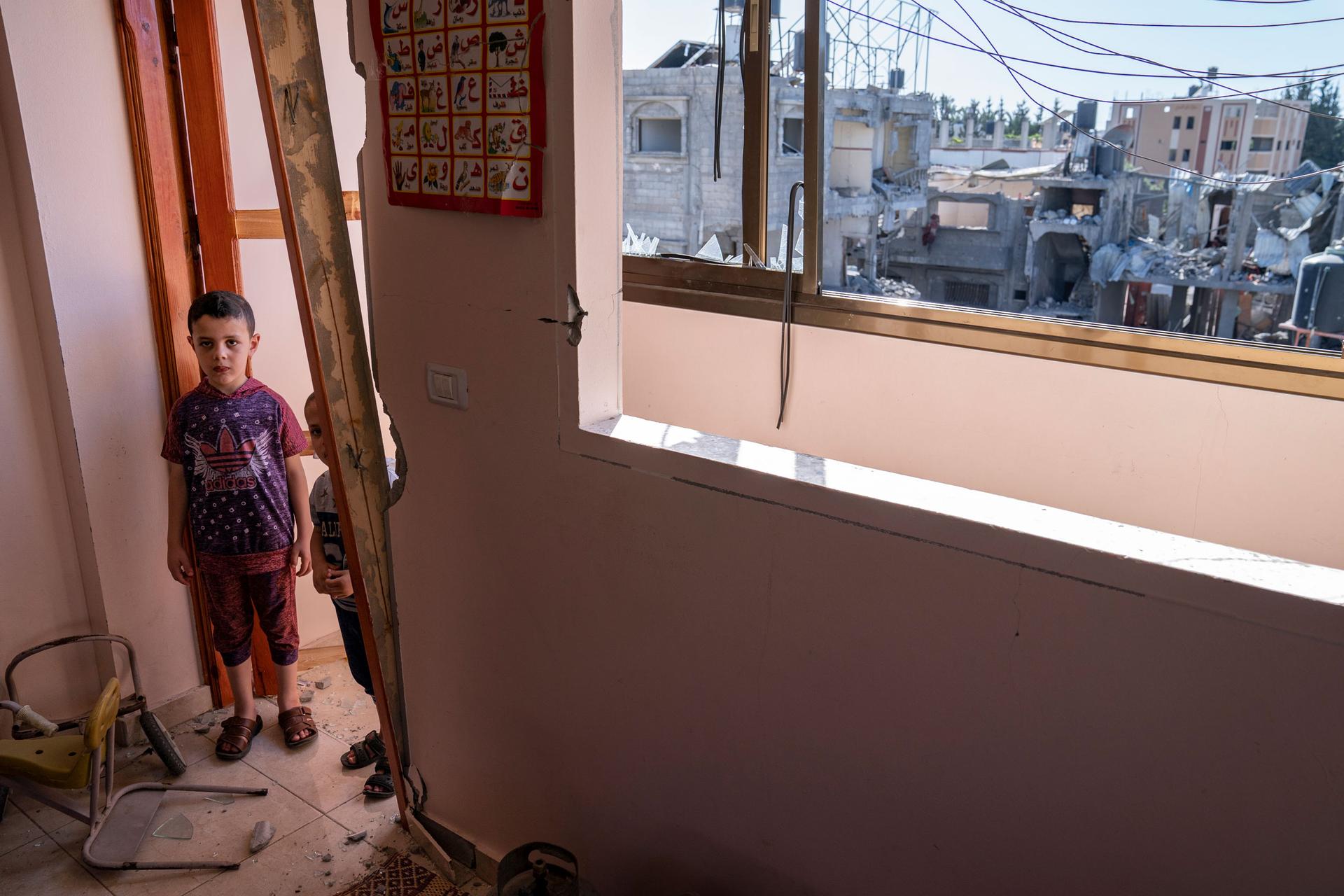
Mahmoud Al-Masri, 14, shared his room with six brothers. At 3 a.m., his family scrambled out of the building after the Israeli military warned them to evacuate. He didn’t think he would make it. The next morning, he was hesitant to return.
“I was afraid that after we returned we would be killed by a drone in another attack,” he said.
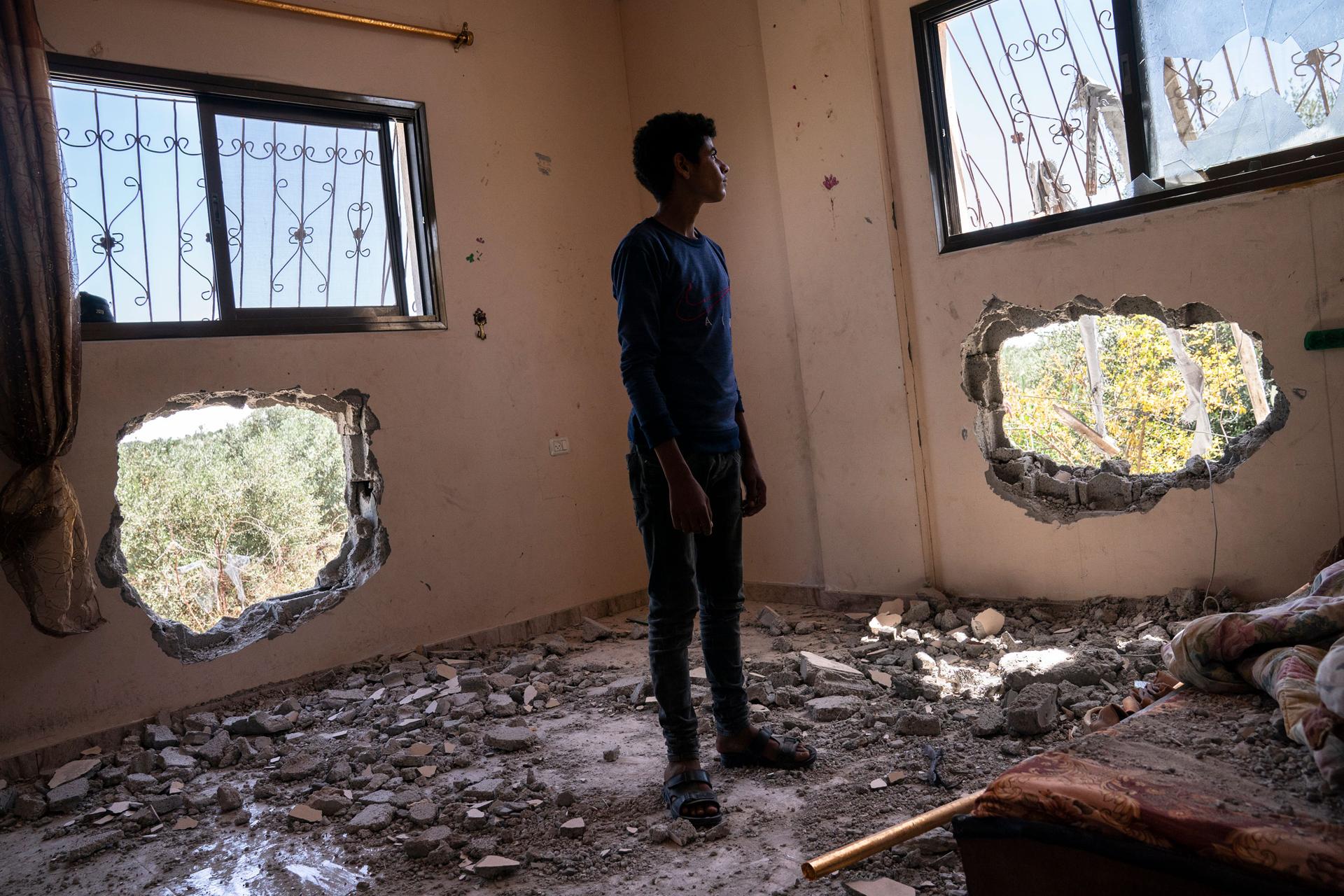
The survivors have even more hardship ahead as they struggle to rebuild. Israel and Egypt have imposed a crippling blockade on Gaza since Hamas seized power from rival Palestinian forces in 2007. Unemployment hovers around 50%.
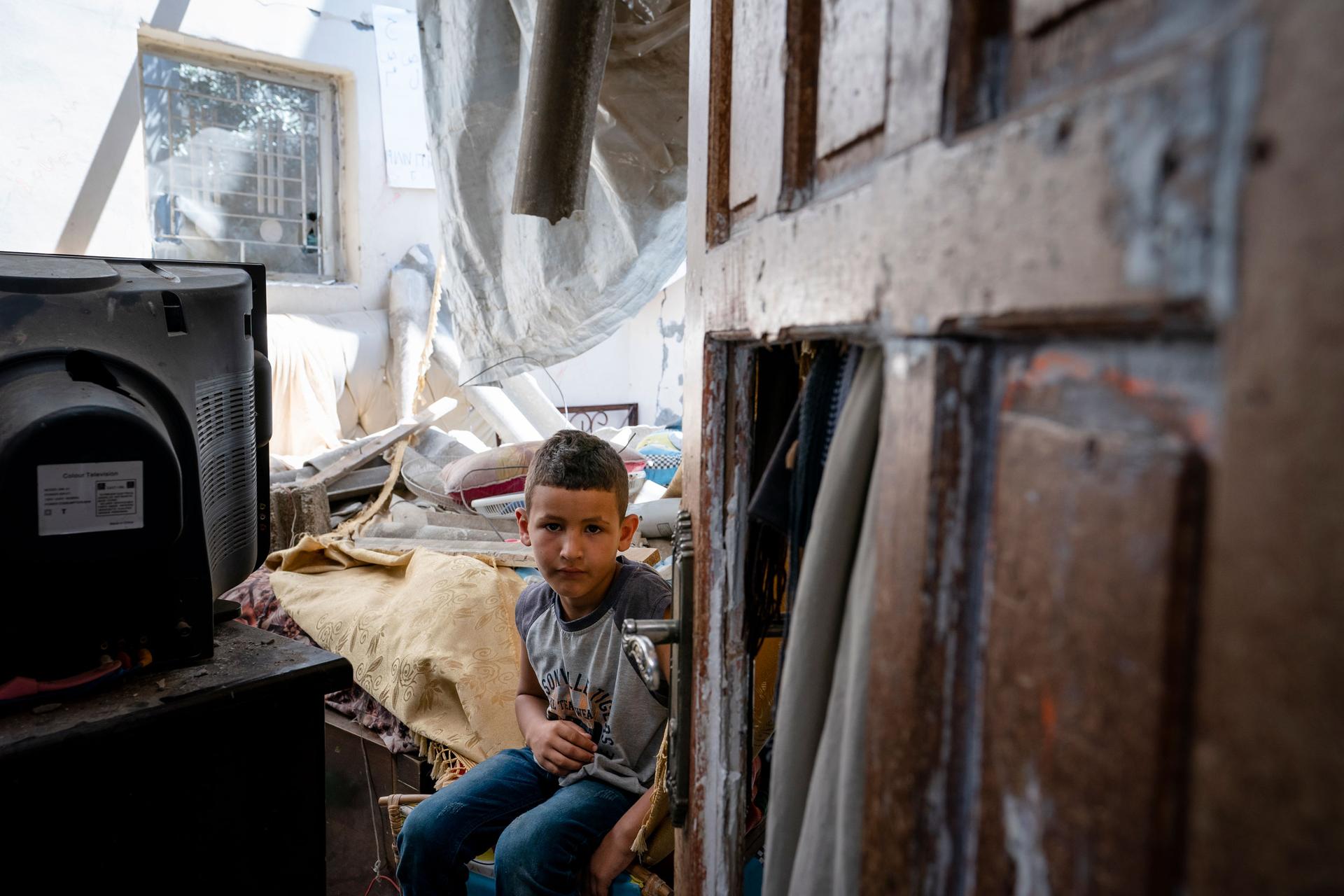
Israel says the closure is needed to keep Hamas from re-arming, while the Palestinians and rights groups view it as a form of collective punishment.
Either way, it will be a long time before the children whose bedrooms were shattered return to somewhere that feels like home.
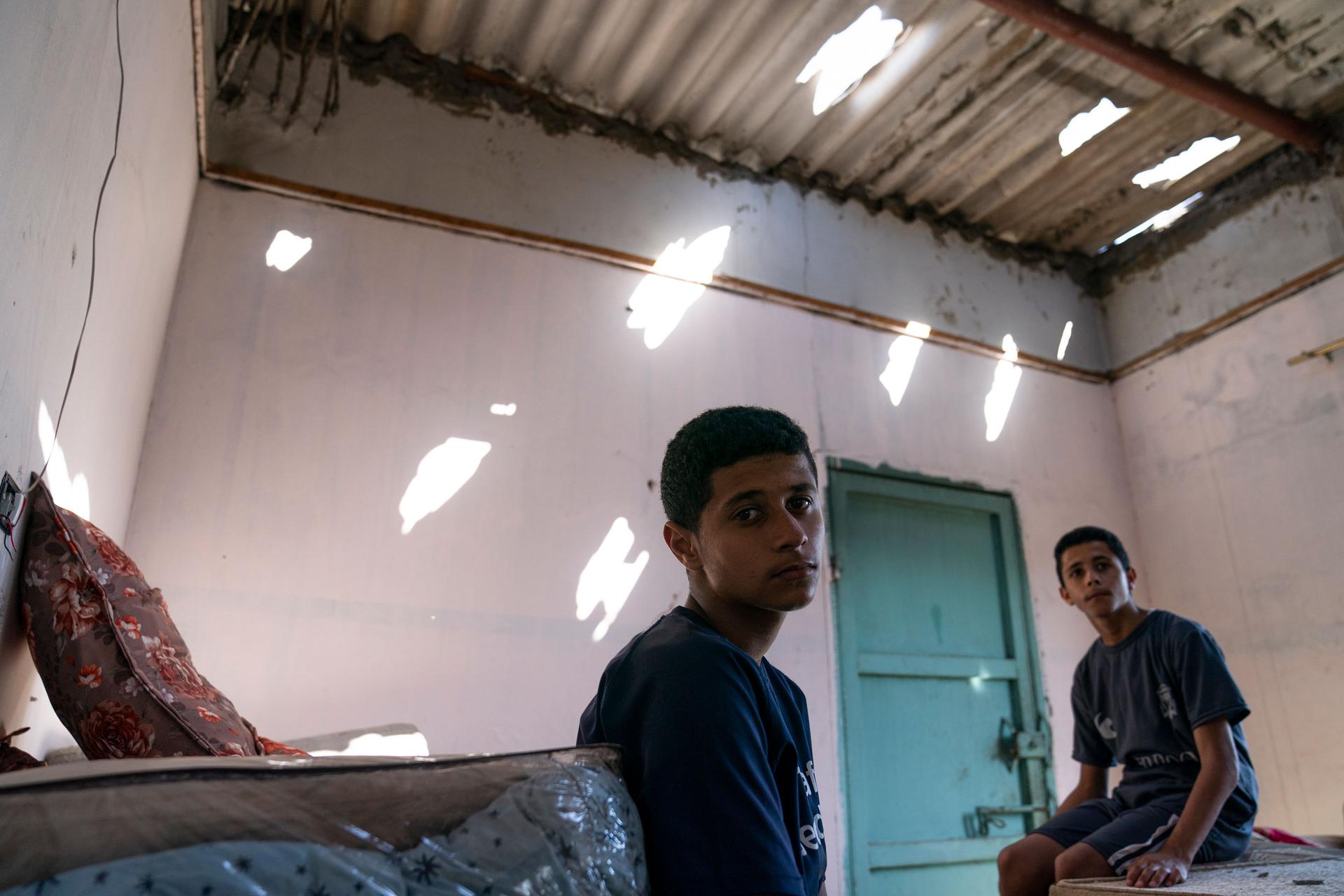
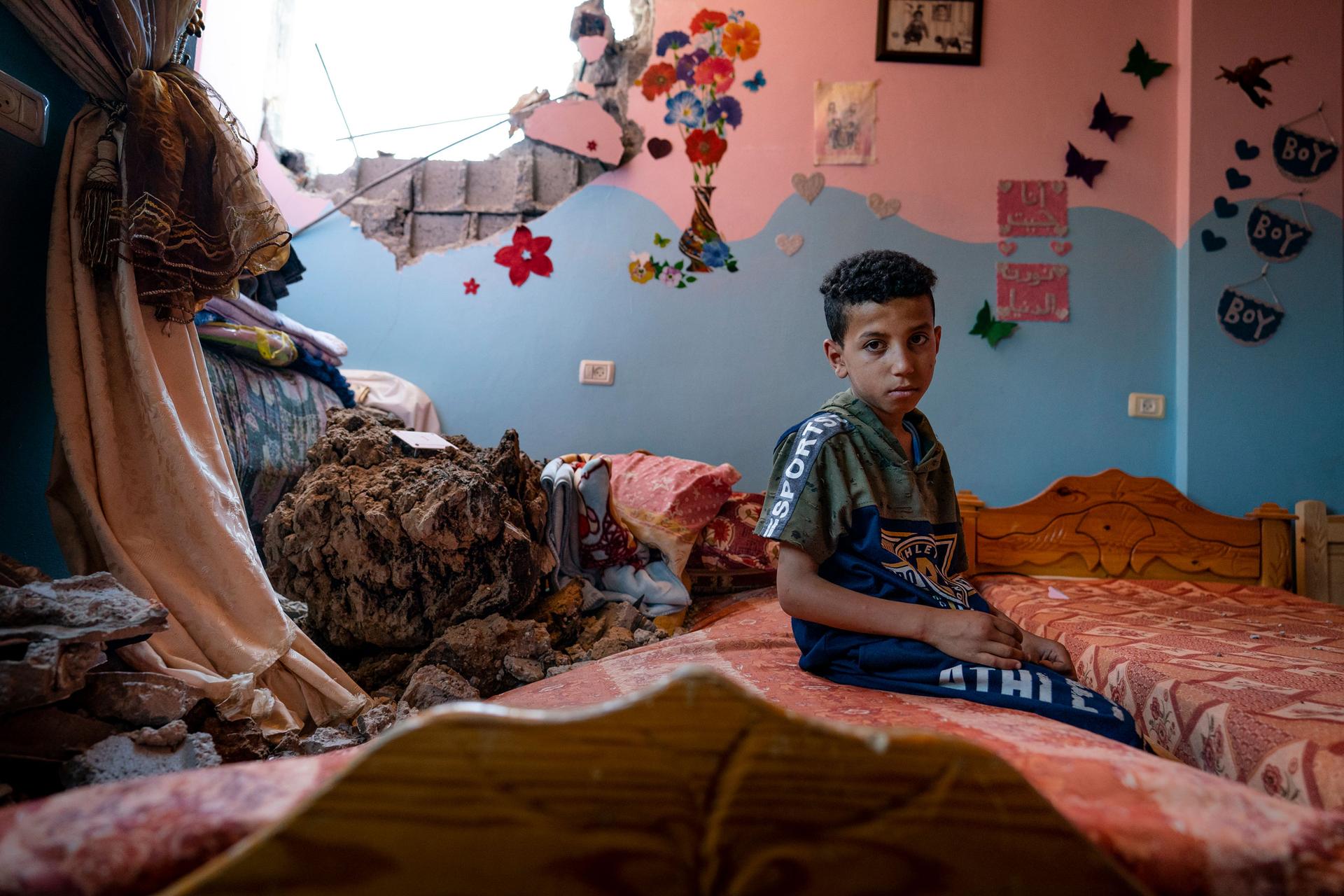
By John Minchillo/AP
